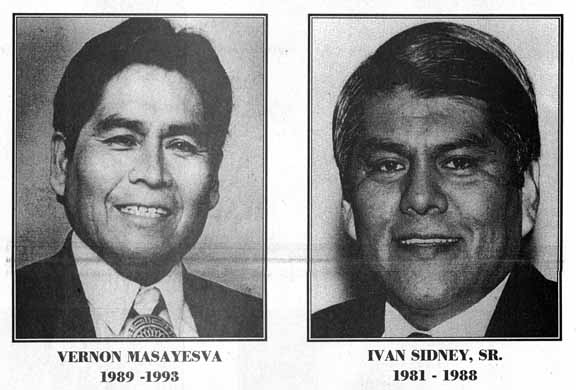Many Indian communities, like the Tlingit or Hopi, did not have centralized principal chiefs, and government and economy was mobilized through villages and clans. Kroeber says, "Ordinarily, the nationality, miscalled tribe, was only an aggregate of miniature sovereign states normally friendly to one another." Kroeber does not deny the sovereignty of Indian government, but suggests that the expression "tribe" in many cases--not all--is a creation of colonial and American officials who want and need more convenient political entities to negotiate treaties, trade and policy.
Below: Two men who became chairmen after the Hopi adopted a tribal constitution.


No comments:
Post a Comment